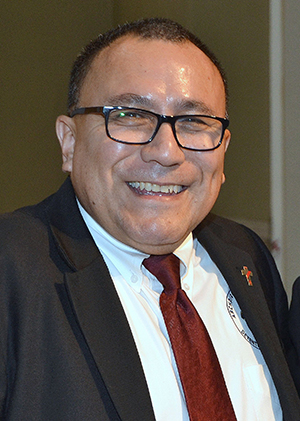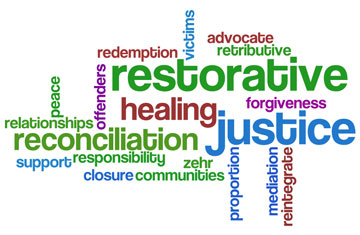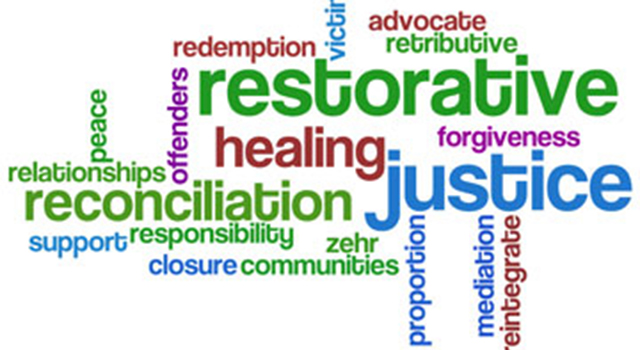By Jim Davis - Florida Catholic

Photographer: COURTESY PHOTO
Deacon Edgardo Farias has directed the archdiocesan Detention Ministry since 2006.
MIAMI | Deacon Edgardo Farias still remembers what then-Archbishop John Favalora told him a decade ago: "You need to train the volunteers to see Christ in the inmates. And they must see Christ in us."
That may be especially hard when dealing with breaking laws or committing violence. But Deacon Farias, director of the archdiocesan Detention Ministry, it's at the core of his mission.
"God was the first missionary," Deacon Farias said in an interview after organizing the diocese's first-ever conference on juvenile justice and capital punishment. "God came to visit us, not only in prison, but in every situation.
"It's my calling, my passion, to be there for people suffering in incarceration."
The Detention Ministry, which goes back three decades, takes Mass to about 700 inmates per week in 34 jails, from Monroe County's Plantation Key Detention Centerto the state-level Hollywood Work Release Center to the Federal Correctional Institution in southwestern Miami-Dade.
The ministry also coordinates an annual spiritual retreat in five state prisons, with help from other groups including Cursillo, Emmaus and Life in the Spirit. It supplies information on social services to families of the incarcerated, through its Saint Dismas Outreach Program. It even posts 12 free videos on topics such as restorative justice, women and children behind bars, and the Angel Tree project to donate Christmas gifts to children of inmates.
"Our job is to recruit people, then equip and send them," Deacon Farias said. "We're open for every Catholic movement that wants to help us."
He currently can call on 250 volunteers, including seven priests and seven deacons. He also provides training and webinars.
But he can still use more because of turnover. "I see many people come enthusiastic; then they leave because they move or change jobs. We need more people to share the gospel. To share their experience with God."
The Detention Ministry is actually a third career for Deacon Farias, 57. Originally a fifth- and sixth-grade teacher in Buenos Aires, he came to the United States in 1984. Here, he became a certified contractor for installing marble and ceramic.
"When you immigrate to another country, you need to start from zero," he said with an easy laugh.
But his life shifted again starting in 1998, while listening to Radio Paz, the archdiocesan radio station. Samuel Diaz, the former director of the Detention Ministry, was on the air with two volunteers.

Photographer: COURTESY PHOTO
Word cloud on Detention Ministry's website shows what the ministry is about.
"I decided, this is the ministry for me," Deacon Farias said. "I had many friends who had been arrested by Immigration, driving with alcohol, or they didn’t have papers. This was a way to help. If people make a mistake, you need to be there for them."
By then, Deacon Farias was bolstering his Detention Ministry work with training. In 2001, he was accepted for the archdiocesan diaconate program, and was ordained years later. In 2006, he was chosen as the fourth director of the Detention Ministry.
He also studied at St. Thomas University Miami Gardens, earning a bachelor's degree in 2011 in organizational leadership. He continued there, earning a master's degree in divinity three years later. He's now working on a Ph.D. in practical theology at St. Thomas.
Continuing challenges? Getting more volunteers, he said. He thinks most people have simply written off those in jail.
"Most think they deserve it," Deacon Farias said. "We don’t like problematic people around us. (But) people make mistakes. They commit crimes because they suffer something, like mental problems or alcohol addiction."
That change in attitude is especially important during this Year of Mercy declared by Pope Francis, Deacon Farias said.
"It's very important to understand what is mercy," he said. "The most important thing is not to exclude (those in prison), but to include them, and try to solve their problems. This is the mission of the Church."

